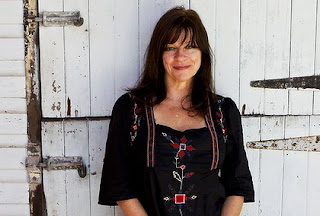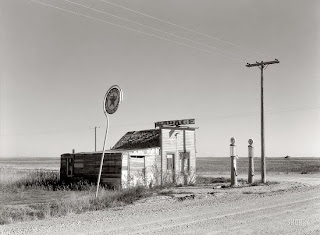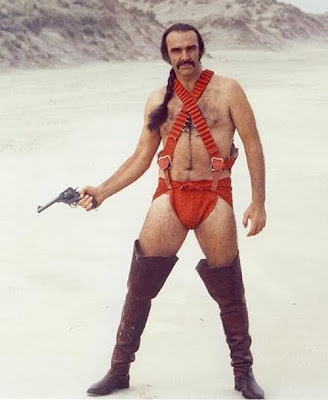The ninth in this occasional series of reprints from
Quote Unquote the magazine is a July 1994 article by novelist
Nigel Cox on novelist, critic and poet
C.K. Stead.
It was pretty negative about Stead’s status in New Zealand literature at the time: it certainly doesn’t describe the Stead of 2010, who has since then published several more novels and poetry collections and won various awards including the Montana for his collected verse: he has had, by any standard, a stellar career since then, let alone what he had achieved before.
So the article is very much one man’s view from 16 years ago – but it is worth posting because:
a) the whole idea of starting this blog was to make material from the magazine available online;
b) it is always of interest to read a novelist on a fellow novelist;
c) Stead refers to the article in his 2008 essay collection
Book Self, as does Judith Dell Panny in her 2009 literary biography of him,
Plume of Bees; and
d) it is so clearly the grit in the oyster that produced the short story “Last Season’s Man”, which won the £25,000 Sunday Times Short Story Award. See the next post for details.
UPDATE: I forgot to include the intro to the article. I can’t remember whether I wrote it, or Nigel did, or we collaborated. Probably the latter:
CK Stead’s All Visitors Ashore is one of the most popular New Zealand novels, but nothing he’s done since has quite lived up to it. His real passion seems to have gone into fighting – and even provoking – several very public battles. Clever, talented and witty, hs has somehow ended up on the fringe of the literary world. It’s his loss – but our loss too. Nigel Cox considers Stead’s deliberately controversial career.
LEADING WITH HIS CHIN
The question is, does Karl Stead know better than the rest of us? Stead’s tone suggests he does. Pronouncing on everything from the appointment of Albert Wendt to a chair in the English department at the University of Auckland to the correct attitude to the Treaty of Waitangi, Stead sounds as though he’s flinging bolts of lightning so that the dim masses below may better find their way through the darkness.
Though lately a change in his tone may be detected. The passionate cry of I’m innocent! has begun to fork the lightning – or is it Stead’s tongue that is forked?
Certainly the latter was the opinion of those who sought to clarify his role in the purchase of the writers’ flat in Bloomsbury. Stead’s decision to act without consultation, and his bland announcement that, naturally, he had put his own name forward for a term in the flat, enraged, and quickly divided, the writing community.
In hindsight it’s hard to see that anyone behaved wisely in this affair – which seems to be a common element in any incident in which Stead is involved. There’s something about the man that instantly makes everyone go ballistic.
It wasn’t always this way. The voice which comes through, for example, in his provocative 1979 piece subtitled “Modern And Modernism In Recent New Zealand Poetry” is thoughtful, relaxed, and, as so often the case with Stead, wonderfully clever.
The actual title is the brilliant From Wystan to Carlos: “I had in mind that Allen Curnow had called his first-born Wystan; and that Ian Wedde, about 35 years later, had called his first-born Carlos. And though I haven’t enquired and don’t know whether either of them was actually naming a child after a poet, Curnow in 1939 can’t have been unaware that Auden’s first name was Wystan, any more than Wedde can have forgotten that William Carlos Williams’ middle name was Carlos.” What follows lives up to that witty beginning, being generous, learned and perceptive, seemingly unconcerned about anything but what’s interesting about poetry.
This same intelligence and learning made Stead’s
The New Poetic, published in 1964, “a late classic of Imagist criticism”. In 1960 Allen Curnow, including three of his poems in the
Penguin Book Of New Zealand Verse, said Stead had “one of the two or three distinct voices among the young New Zealand poets”.
There was a time when his name carried implications of clarity, learning and wit. Students who were in his English classes recall not only his passion for literature but that he was kind and friendly. Then gradually a change came and it seems to have begun about the time of the publication of his second novel,
All Visitors Ashore, in 1984.
Stead was at that point a liberal to be counted on. His 1971 novel
Smith’s Dream was widely read as an attack on what Muldoon might stretch to unless resisted. By the early 80s he’d shaved off the big beard which had made him look like a 60s campus radical, but photos from the time show him gleefully occupying the pitch with other anti-Tour protesters at Rugby Park, Hamilton in 1981.
By 1983 he was telling
Landfall, “My own political obsessions can be pretty unrelenting. The Vietnam War got into my blood and into my dreams. . . More recently there was the Springbok tour. That got me off my chair and even showed me the inside of a cell for the first time in my life.”
These were at that point politically correct attitudes to have – even though PC wasn’t established as a term then. Readers loved
All Visitors Ashore and it rightly received wonderful reviews, but Stead did have to defend himself against the charge that he’d cruelly satirised Janet Frame in his portrait of the character Cecilia Skyways, busy writing her abjectly titled
Memoirs Of A Railway Siding. Frame declared herself to be unharmed and said she liked the novel, so no damage appeared to have been done. But the I’m innocent! tone in Stead’s voice had been heard – and not for the last time.
Soon after, Stead wrote in the Canadian magazine
Ariel that
the bone people asked for “imaginative complicity” in “extreme violence against a child” and said in a discussion on radio that Keri Hulme’s Maori was “boned up”.
He took it upon himself to say that instead of old boys, in New Zealand we now had “good boys”, and that poet Ian Wedde was one for including Maori and women poets who weren’t up to scratch in his and Harvey McQueen’s 1985 version of
The Penguin Book Of New Zealand Poetry.Andrew Mason, then literary editor of the
Listener, was a good boy too, for organising soft reviews of books by women and dual reviews, one by a Maori and one by a Pakeha, of books with bicultural content. The good boy concept hasn’t died – Stead awarded the tag to Michael King recently for saying that New Zealand had learned consensus decision-making from Maori.
During this period his output as a poet began to dwindle. His first book of poems,
Whether the Will is Free, appeared in 1962; his eighth,
Between, in 1988. Since then only the commissioned
Voices, written to commemorate the 1990 sesquicentennial (and widely uncelebrated) has appeared. Once he was a poet automatically included among those who counted. Is this still true?
And yet poetry has always mattered to Stead. Damien Wilkins, in a devastating critique of
The End of the Century at the End of the World entitled “The Self-Loathing Of A Stead Novel” (
New Zealand Books, December 1992) argues that, for Stead, “to poetry’s angel, prose is the necessary donkey. . . Look at how much envy this novel displays for poetry.”
And in the
Landfall interview Stead himself says that “a novelist has to be a bit stolid and come back every day the same person. I find that very difficult. . . my sense of myself from probably about the age of 13. . . centred on writing. . . and I would say since that time the poetry has really been the centre of my intellectual life.” But apart from one recent and very small poem, Stead seems to have stopped publishing in this form.
And also to have stopped criticising it. These days he criticises society, via his short-lived but high-impact column in
Metro or, more recently, novels. Since he took early retirement in 1986 to devote himself to his writing, Stead has concentrated on fiction, producing the dreary
Sister Hollywood, the empty
The End of the Century at the End of the World and now
The Singing Whakapapa.
This latest novel, as elegantly phrased as ever, nevertheless does nothing to dispel Wilkins’ assertion that “Stead is almost chronically bored the moment he starts writing a scene”. I predict it will quietly slip below the surface, as its two predecessors have done, and receive neither resounding applause nor stir up the kind of rage its provocative title seems to hope for.
But if his recent fiction hasn’t brought him the attention he’s been used to, his editing of the
Faber Book of Contemporary South Pacific Stories seemed for several months to be all the literati had to talk about. The story of how Keri Hulme, Witi Ihimaera, Albert Wendt and Patricia Grace accepted inclusion and then withdrew has been told in astonishing detail. These withdrawals, along with refusals from Vincent O’Sullivan and Hone Tuwhare, who is said to have had a financial disagreement, made the steamer on the book’s cover seem something like a ghost ship. Later came the astonishing suggestion that Keri Hulme could edit an improved edition which would include 10 additional Polynesian writers including the “refuseniks”.
It’s the difficulties over this book which seem finally to have drawn a change in tone from Stead. At its launch during Writers And Readers Week, he was preceded at the microphone by Faber’s editor, the novelist Robert McCrum, who opened proceedings by seeming to apologise for the book and to the missing authors. This was clearly unsettling for Stead, who for the first time in anyone’s memory spoke hesitantly. He managed to get in a couple of well-aimed blows at Faber, suggesting they had been less than courageous, and defended the book. Then to everyone’s astonishment he suggested that perhaps he “was out of touch with New Zealand”.
The description of him is the one most frequently applied by his detractors. Surely if Stead now accepts that it is accurate, then his stance in the last five years must be called into question. How can he know better than us if he’s out of touch with us?
Stead might argue that we’ve lost the straight way, that he speaks for common sense when party lines and pious “correctness” have led us up the garden path, but recently his voice has seemed not so much to be pitched above the fray as determined to be in the bloody thick of it.
He has great skill at personalising his battles, so that as you agree with him you are repelled by his method of argument. Did he, for example, have to slice Lauris Edmond’s poem “The Lecture” into such small pieces to “prove” that women’s poetry must be subjected to the same critical standards as men’s? It was a way of making his point, sure, but a cruel way.
As a critic, Stead is merciless, and at times this can be very valuable. His demolition in the
London Review Of Books of David Malouf’s novel
Remembering Babylon was clear-sighted and accurate. But often there is a sense, as there was with the Edmond demolition, that Stead had a score to settle. It’s this quality, that both the man and the ball are being played, that makes you reluctant to cede him the high moral ground he insists is his.
A danger with taking the high moral ground is that you have to stay up on it, always a problem over a long career. Included in his attack on the Wedde-McQueen anthology was a point about why he had declined to edit it himself: “I think I refused for the same reason I had in the late 1960s declined to do the Oxford anthology which was later done by Vincent O’Sullivan. I wanted to be sure that if poems of mine were represented they were there because someone else thought they should be” – not a principle he applied to himself in editing the Faber anthology, which includes his story “A Short History Of New Zealand”.
And sometimes his “honesty” seems misplaced, as, for instance, his comments in the recent
Oxford Companion To 20th Century Poetry about Robin Dudding’s management of
Landfall. In a book destined for the world literary audience, did he really have to say Dudding was “a talented but saurian editor whose ability was not meeting deadlines or keeping to schedules”? This seems a gratuitous dig, an irrelevancy – especially when, said specifically of Dudding’s time at
Landfall, it’s not even true.
The superannuation from his early retirement, combined with regular if modest royalty payments (according to industry sources,
End Of The Century sold only about 500 copies, which may be one reason his new novel has a local rather than a British publisher) and the fees he gets for providing items like the Education Forum’s response to the proposed English syllabus, should mean that as a writer he’s ideally placed: financially comfortable, with a lifetime of reading and experiments behind him, ready to produce the mature writings which will permanently secure his reputation. But his post-retirement output has in the main been three forgettable novels. And recently he seems isolated, not just from everyone else in the local writing community, but from his country. Can he have come so far, to find that he has nothing worth saying? Or that no one wants to hear from him?
To be fair, it is fatal in the New Zealand of the 90s to speak as Stead does, and pathetic that the price of speaking this way is that you are shouted down, then marginalised. Stead is brave, and what he has to say frequently offers a valuable if merciless challenge to the “right-thinking”. But you can’t help asking: why does he persist? Is it that without the forum that the university gave him, he seeks attention? A flyer for a recent poetry reading had him calling himself a “controversialist”. Surely that’s a very minor role for someone of his talents?
Stead is only 62, and he’ll be around for a good while yet, but it’s sad to catch a sense that despite the rage there is a dying of the light, or at least a movement from a bang to something surprisingly close to a whimper. In his most recent poem, comparing himself to Sylvia Plath, he describes himself as an aging poet “of modest reputation” and concludes with the line, “Living is an art. He does it as well as he can.”
But we can’t accept this. He is prematurely resigned. Surely there is lightning yet to come?
















